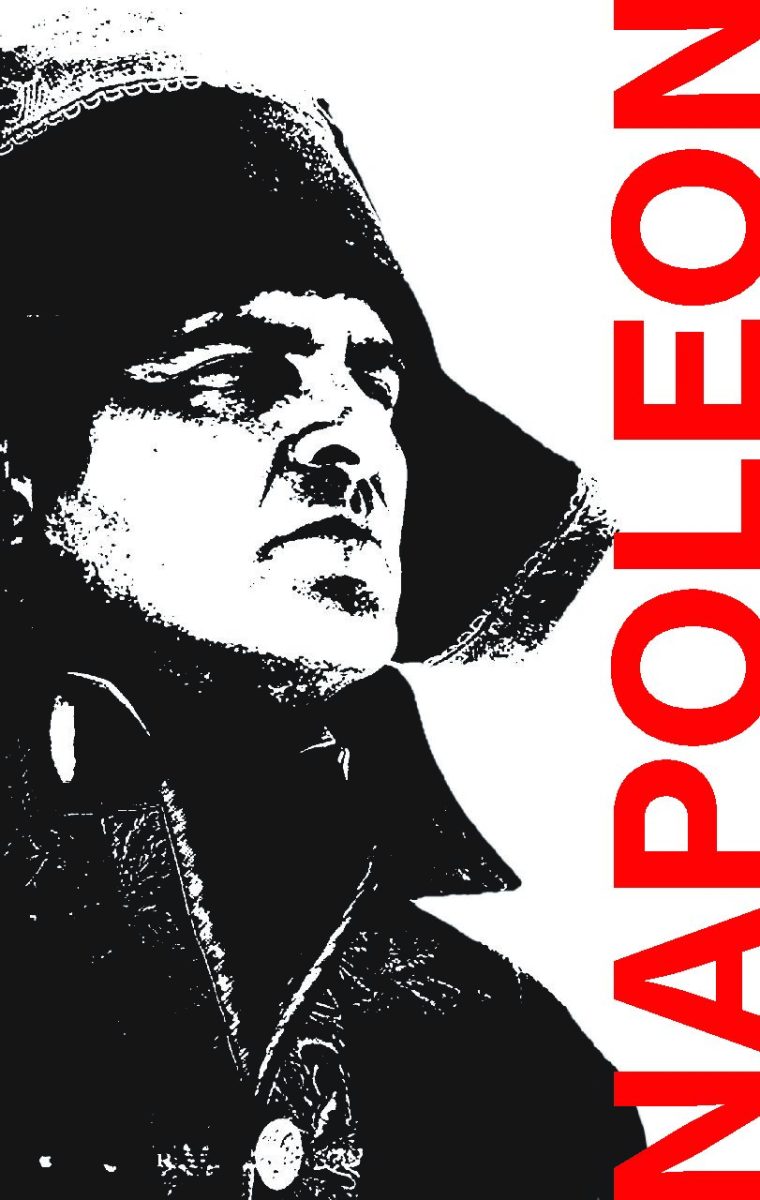“Napoleon,” the most recent film attempting to capture the infamous emperor onscreen, is a miss. The film is directed by Ridley Scott, a proven master of big-budget epics with work like “Gladiator,” and stars Joaquin Phoenix in his first collaboration with Scott since portraying a different maniacal and neurotic leader in “Gladiator.” Despite this, the film fires out of a cannon straight into the ground.
There are interesting things going on in “Napoleon.” For one, Scott chooses to orient much of his film around Bonaparte’s relationship with his wife, Josephine. Josephine, portrayed in the film by a vivacious Vanessa Kirby, is a domineering presence in her husband’s life, from the bedroom to the battlefield. Phoenix often recites letters from the emperor to his wife in longing voiceovers, and his pathetic characterization of the emperor contrasts nicely with the carefully-constructed battle sequences he speaks over. When the two are together, Kirby is a fierce and exasperated Josephine, putting Napoleon in his place as often as she’s comforting his insecurities. Scott digs into the oddities of their relationship with occasional glee, like in one scene where Napoleon and Josephine are having breakfast together.
While guards stand in the background and stare into the middle distance, Phoenix imbues Napoleon with a submissive silliness. Napoleon indicates to his wife that he would like to be intimate with her by opening and closing his mouth like a guppy, and then crawling under the length of a long breakfast table to reach her. It’s a preposterous and hysterical scene, and Kirby and Phoenix play the absurdity of it wonderfully.
Unfortunately, these sequences are few and far between. For all of Scott’s self-awareness during these awkwardly humorous moments, he can’t help but bend under the weight of temptation. When telling the story of “Napoleon,” he must show the battles that Napoleon fought and the reasons he fought them.
The film begins with the execution of Marie Antoinette, and from that moment on, Scott seems to want to let his film eat cake and have it too. After Antoinette’s bloody beheading, Napoleon is depicted as standing in the crowd, watching shrewdly. While no dramatization of history will ever be entirely historically accurate, and Scott has suggested that historians who quibble with his depiction of events “get a life,” the opening Antoinette scene indicates from the first frame what sort of film “Napoleon” is. Napoleon was not at Antoinette’s execution, and his inclusion for the film makes it clear that Scott is content to play the hits of history in order to serve up a spectacle.
This freedom from historical accuracy and flair for accentuating the strange nuances of Napoleon’s relationship sets Scott up well for a quirky and ambitiously unique “Napoleon.” Unfortunately, like Napoleon invading Russia in the winter, he squanders it.
Instead of frontlining Napoleon and Josephine, Scott underutilized Kirby. Rather than jump from beheading to battle to banishment, Scott trudges through European politics, dragging a movie supposedly uninhibited by historical minutiae down into the mud of foreign dignitaries and ballrooms. Many scenes feature neither Kirby or Phoenix, a baffling decision in a film titled with what its focus should be. There are long scenes of European men discussing political alliances or betrayals, and yet these conversations are frequently rendered meaningless by the time jumps Scott employs to cover more of Napoleon’s reign. The world of “Napoleon” feels vast and lived in, but Scott offers mere glimpses into it, creating a frustrating lack of investment into anything beyond the battlefield.
At the end of the day, the battlefield is the primary star of “Napoleon.” Scott features no fewer than six major battles from Napoleon’s military career. These sequences are massive in scope, with hundreds of extras and countless cannonballs careening across the screen. However, the orchestration of the battlefield is more apparent than the feeling of it. There is nothing to root for in these fights. Without a deep understanding of the importance of each skirmish to Napoleon’s narrative arc, there’s a clinical distance to every battle, no matter how much smoke the muskets fire or how many flags are triumphantly flown.
Generally, Napoleon’s story is given too little in a movie that’s too long. Scott crams so much into his film, but the filling morsels –– Kirby’s Josephine, Phoenix’s brilliant dynamic with her –– are diluted by fleeting moments. There isn’t enough time for anything in a film that covers 30 years.
The first time Phoenix opens his mouth, an American accent comes out. That bold choice represents the whole of “Napoleon”: a big Hollywood production that stands by its big Hollywood decisions. It’s not an exercise in French history, but neither is it a flawed romance, and it only scratches the surface of being a movie star showcase for Phoenix. Napoleon aimed for world conquest and ended in exile. “Napoleon” wanted to create a world but wound up an exercise in excess.
Rating: 2.5/5 Yosefs





Liv • Nov 28, 2023 at 10:53 am
I kinda liked this movie and then I read this and said “ actually yeah that movie sucked! Vanessa Kirby is hot though.”
Funny Bunny • Nov 28, 2023 at 10:45 am
Agreed. An appropriate amount of Yosefs you have given. Lots of money went into this and nothing memorable came out 🙁